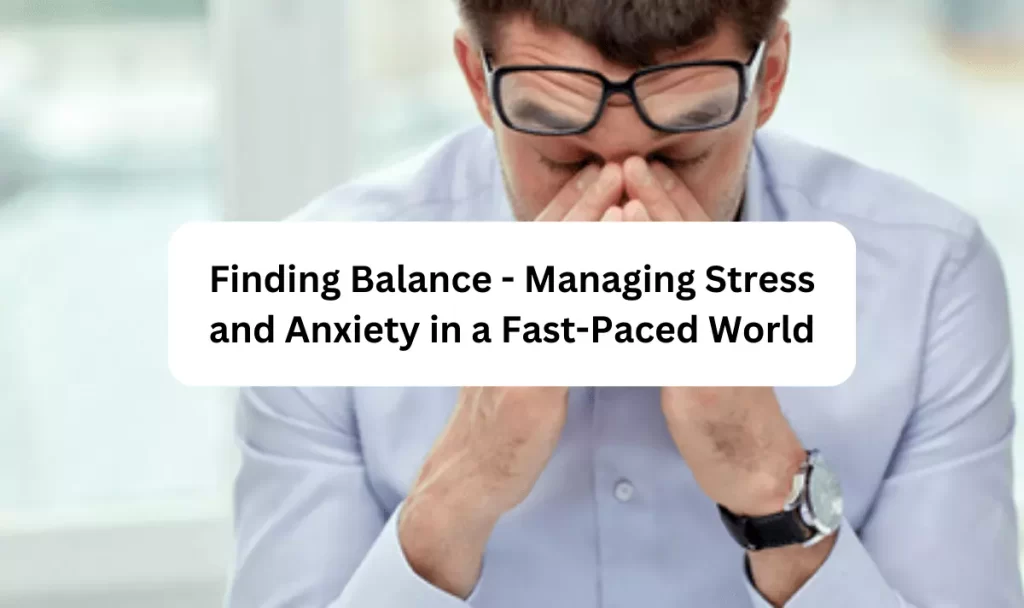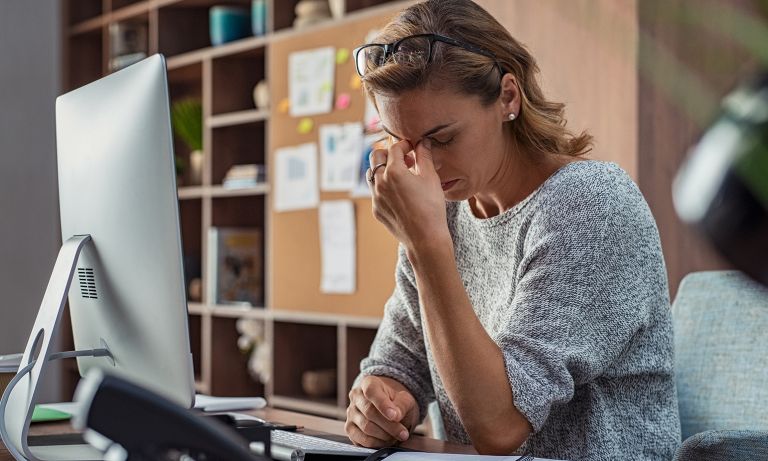
Finding balance and managing stress and anxiety has become crucial for our overall well-being. The constant demands of work, relationships, and personal responsibilities can often leave us feeling overwhelmed and mentally exhausted. However, with the right strategies and mindset, it is possible to navigate the challenges and find inner peace amidst the chaos. In this article, we will explore various techniques and practices that can help individuals find balance, reduce stress, and manage anxiety effectively.
Content
The Impact of Stress and Anxiety
Stress and anxiety can significantly impact our physical, emotional, and mental health. Prolonged exposure to stress can lead to a range of health issues, including high blood pressure, heart disease, and weakened immune system. Anxiety, on the other hand, can interfere with daily activities, impair concentration, and affect our overall quality of life. It is crucial to address these concerns and develop coping mechanisms to ensure a balanced and fulfilling life.
Recognizing the Signs of Stress and Anxiety

Before diving into effective strategies to manage stress and anxiety, it is important to recognize the signs and symptoms associated with these conditions. Some common indicators include:
- Physical Symptoms: Headaches, muscle tension, fatigue, sleep disturbances, and digestive issues.
- Emotional Symptoms: Irritability, mood swings, feeling overwhelmed, and a sense of restlessness.
- Cognitive Symptoms: Racing thoughts, difficulty concentrating, memory problems, and indecisiveness.
- Behavioral Symptoms: Changes in appetite, social withdrawal, increased substance use, and neglecting responsibilities.
Finding Balance in a Hectic World
1. Prioritize Self-Care
Taking care of oneself is essential for managing stress and anxiety. Prioritizing self-care activities can help restore balance and rejuvenate the mind and body. Some effective self-care practices include:
- Engaging in regular exercise or physical activities that you enjoy, such as yoga, jogging, or dancing.
- Practicing mindfulness and meditation to calm the mind and reduce anxiety.
- Getting enough sleep to ensure rest and recovery.
- Nurturing hobbies and interests that bring joy and fulfillment.
2. Cultivate Supportive Relationships
Having a strong support system is crucial for managing stress and anxiety. Surrounding yourself with positive and supportive individuals can provide comfort and perspective during challenging times. Seek out friends, family members, or support groups who can offer guidance, understanding, and a listening ear. Sharing your thoughts and emotions with trusted individuals can help alleviate stress and provide a sense of relief.
3. Set Boundaries

In a fast-paced world, it is easy to become overwhelmed by the constant demands and expectations. Learning to set healthy boundaries is essential for maintaining balance and reducing stress. This includes:
- Learning to say no when necessary and not overcommitting yourself.
- Allocating time for rest and relaxation, without feeling guilty.
- Identifying priorities and focusing on tasks that align with your goals and values.
- Limiting exposure to negative or toxic influences.
4. Practice Time Management
Effective time management can significantly reduce stress and anxiety. By organizing your schedule and setting realistic goals, you can avoid overwhelm and accomplish tasks efficiently. Consider implementing the following strategies:
- Creating a daily or weekly to-do list to stay organized.
- Breaking down larger tasks into smaller, manageable steps.
- Utilizing time management techniques, such as the Pomodoro Technique, to enhance productivity.
- Avoiding procrastination by tackling important tasks first.
5. Embrace Mindfulness
Mindfulness is a powerful tool for managing stress and anxiety. By practicing present-moment awareness and non-judgmental acceptance, you can cultivate a sense of calm and reduce anxiety. Incorporate mindfulness into your daily routine with the following techniques:
- Engage in deep breathing exercises to promote relaxation.
- Pay attention to your thoughts and emotions without judgment.
- Practice gratitude by reflecting on things you are thankful for.
- Engage in activities mindfully, such as eating or walking.
6. Seek Professional Help

If stress and anxiety become overwhelming or significantly impact your daily life, it is important to seek professional help. Mental health professionals, such as therapists or counselors, can provide guidance, support, and evidence-based interventions to help manage stress and anxiety effectively. Remember that reaching out for help is a sign of strength, and there are resources available to support you.
Conclusion
Finding balance in a fast-paced world is a continuous journey that requires self-awareness, self-care, and effective coping strategies. By prioritizing your well-being, cultivating supportive relationships, setting boundaries, practicing time management, embracing mindfulness, and seeking professional help when needed, you can navigate the challenges of stress and anxiety with resilience and grace. Remember, it is possible to lead a balanced and fulfilling life, even in the face of a hectic world.
u003cstrongu003eHow can stress and anxiety affect my physical health?u003c/strongu003e
Stress and anxiety can have a profound impact on physical health, leading to conditions such as high blood pressure, heart disease, weakened immune system, and digestive problems. It is important to manage stress to maintain overall well-being.
u003cstrongu003eCan lifestyle changes help reduce stress and anxiety?u003c/strongu003e
Yes, adopting healthy lifestyle changes can significantly reduce stress and anxiety. Regular exercise, proper sleep, a balanced diet, and engaging in relaxation techniques can all contribute to improved mental well-being.
u003cstrongu003eIs it normal to experience stress and anxiety in a fast-paced world?u003c/strongu003e
Yes, it is normal to experience stress and anxiety in today’s fast-paced world. However, it is important to develop healthy coping mechanisms and find a balance that works for you.
u003cstrongu003eHow can mindfulness help manage stress and anxiety?u003c/strongu003e
Mindfulness involves focusing on the present moment without judgment. This practice can help reduce stress and anxiety by promoting relaxation, self-awareness, and acceptance of one’s thoughts and emotions.
u003cstrongu003eWhen should I seek professional help for stress and anxiety?u003c/strongu003e
If stress and anxiety significantly interfere with your daily life, relationships, or overall well-being, it is advisable to seek professional help. A mental health professional can provide appropriate guidance and support tailored to your specific needs.
u003cstrongu003eAre there any medications available for managing stress and anxiety?u003c/strongu003e
In some cases, medications may be prescribed to help manage stress and anxiety. It is important to consult with a healthcare professional to determine the most appropriate treatment plan based on individual circumstances.

Alina Smith is a health blog author with an interest in the intersection of wellness and mental health. She’s worked as a writer, editor, and communications specialist for various healthcare organizations. Alina has also led projects to improve access to care for underserved populations in both rural and urban settings.



